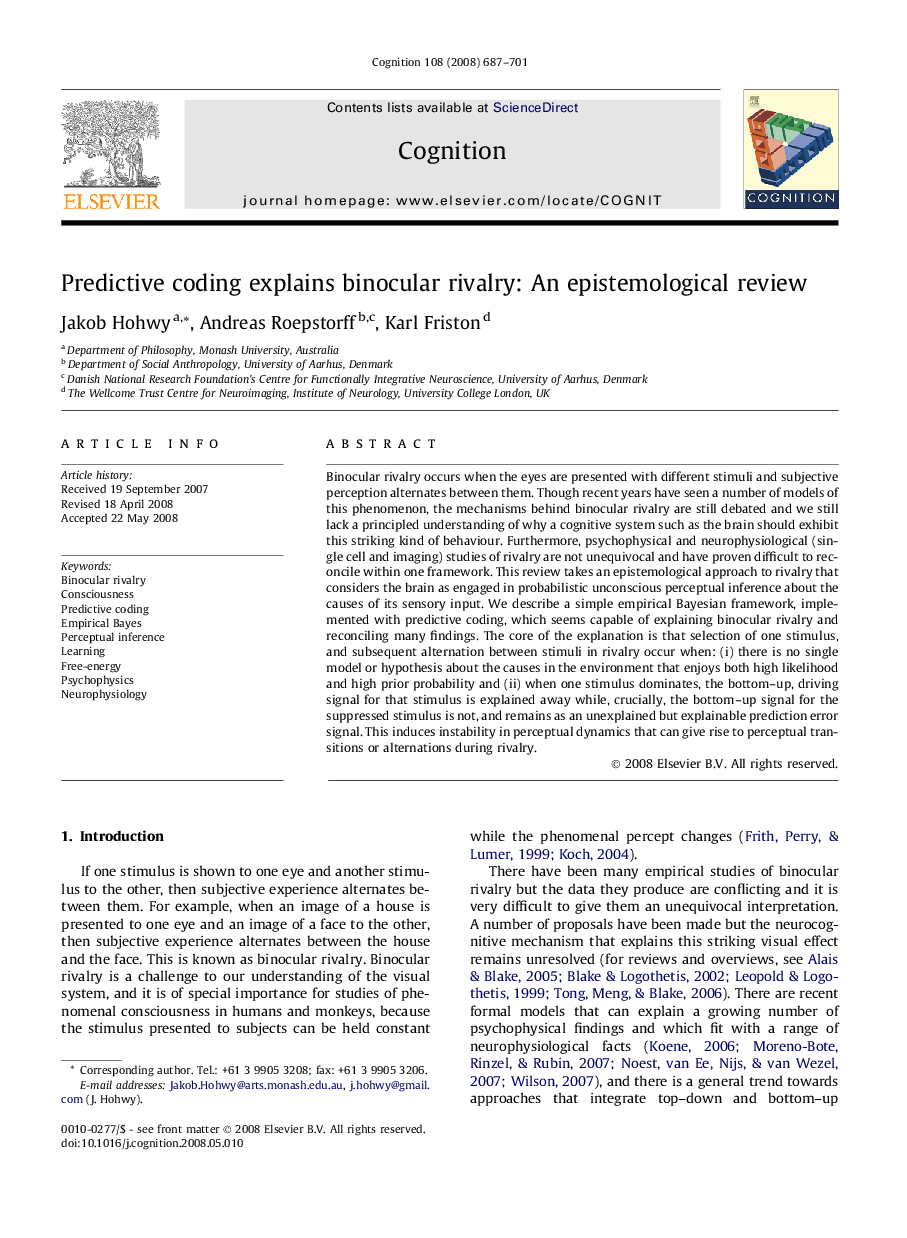| کد مقاله | کد نشریه | سال انتشار | مقاله انگلیسی | نسخه تمام متن |
|---|---|---|---|---|
| 927309 | 921966 | 2008 | 15 صفحه PDF | دانلود رایگان |

Binocular rivalry occurs when the eyes are presented with different stimuli and subjective perception alternates between them. Though recent years have seen a number of models of this phenomenon, the mechanisms behind binocular rivalry are still debated and we still lack a principled understanding of why a cognitive system such as the brain should exhibit this striking kind of behaviour. Furthermore, psychophysical and neurophysiological (single cell and imaging) studies of rivalry are not unequivocal and have proven difficult to reconcile within one framework. This review takes an epistemological approach to rivalry that considers the brain as engaged in probabilistic unconscious perceptual inference about the causes of its sensory input. We describe a simple empirical Bayesian framework, implemented with predictive coding, which seems capable of explaining binocular rivalry and reconciling many findings. The core of the explanation is that selection of one stimulus, and subsequent alternation between stimuli in rivalry occur when: (i) there is no single model or hypothesis about the causes in the environment that enjoys both high likelihood and high prior probability and (ii) when one stimulus dominates, the bottom–up, driving signal for that stimulus is explained away while, crucially, the bottom–up signal for the suppressed stimulus is not, and remains as an unexplained but explainable prediction error signal. This induces instability in perceptual dynamics that can give rise to perceptual transitions or alternations during rivalry.
Journal: Cognition - Volume 108, Issue 3, September 2008, Pages 687–701